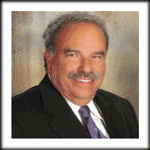Gun Smoke
By Mort Laitner
As a twelve-year-old, I often sat in my father’s medical office. While my family watched their nightly doses of I Love Lucy, Gunsmoke or Bonanza, I stared at my Dad’s mementos which lined his book shelves. From across his desk I saw: a white marble owl, whose eyes pierced through my soul, an eighteen-inch high cracked porcelain Leaning Tower of Pisa injured in transit from Italy to the States, numerous plastic interlocking bones and tendons, a statuette of poet and Venetian physician Girolamo Fracastoro, a colorful disassembled model of the human eye and many sixteenth century leather-bound medical texts written in Latin and German. His collection impressed me as I relaxed in his large leather chair. I rocked, swayed and fantasized a career in medicine, with all its incumbent prestige, wealth and power. The thought of being a small-town physician intrigued me.
Ding dong, ding dong, ding dong.
The office door bell rattled me out of my daydream. I peered out the window and saw three of my father’s patients. There stood John, his wife, Mary, and their two-year-old child, Melissa. John held the carcass of a raccoon while Mary cradled Melissa in her arms. I heard Melissa give the universal childhood scream in fear of doctors, their offices and their injections.
My Dad bolted from his Western, ran across the breezeway that connected the house to the office to unlock the office door.
“John… Mary …What happened to Melissa?” Dad asked.
Waving the dead raccoon by its tail, John replied, “Doctor Laitner, this damn varmint bit my baby. The animal was acting real strange, crawled out of the maple tree, wobbled across the yard and then charged Melissa. Before I could kick in its head, the raccoon bit my baby on the finger.” John grabbed his child’s hand, causing an even louder cry and exhibited her bloody appendage.
Mary whispered into Melissa’s ear as tears ran down her face, “Baby, everything is going to be alright. The doctor isn’t going to hurt you. He’s just going to clean up that finger and put a bandage on it.”
“Doc, I know about rabies. When I was in the army, I shot a mutt that was foaming from the mouth. We took the carcass to a laboratory and later on they told us the dog had rabies. We were darn lucky that it had not taken a bite out of us soldiers or we would have to take all those rabies shots.” John said, as Melissa recommenced wailing. “So I ran back into my house, loaded my double barrel 20 gauge and with one shot killed the raccoon. I aimed for its gut knowing that the brain is the part of the body the laboratory puts on a slide to go under the microscope to see if there is rabies.”
My father smiled, congratulated John for his marksmanship but held back at shaking his hand. He invited the family into his examination room. He slapped on some surgical gloves and handed John a fifty-gallon black plastic garbage bag.
“John, please drop the raccoon into the Hefty bag and then seal it. Then go into the bathroom and scrub your hands real hard with soap and hot water. When you are finished come back here.”
My Dad lifted Melissa by her under arms and placed her on to the examining table. In a soft tone he said, “Melissa, this is not going to hurt. All I’m going to do is wash your finger, put some medicine on it and put on a Fred Flintstone Band-Aid.” Dad examined the punctures, cleansed the wound for five minutes, while assuring the child that she was going to be okay. Melissa smiled at my father and sat quietly as he worked on her finger.
Dad removed the gloves, scrubbed his hands and then phoned the 24-hour emergency health department number to have the raccoon picked up and tested for rabies. He explained to the frightened parents the risks and the benefits of giving Melissa the rabies vaccine. In laymen’s terms, he explained that rabies was a viral disease which causes acute encephalitis. That rabies is invariably fatal if post-exposure prophylaxis is not administered prior to the onset of severe symptoms.
“Tomorrow morning we’ll have the test results, so I‘d like to see Melissa here at 10:00 AM.”
“Dr. Laitner, thanks for taking care of our baby. We’ll see you at ten.”
As I watched the family exit the office, I felt the pride of having a father who protected Melissa’s life. He took control of this tense situation. He showed the family compassion and loving care. But most of all, he treated this family as if they were his very own.
